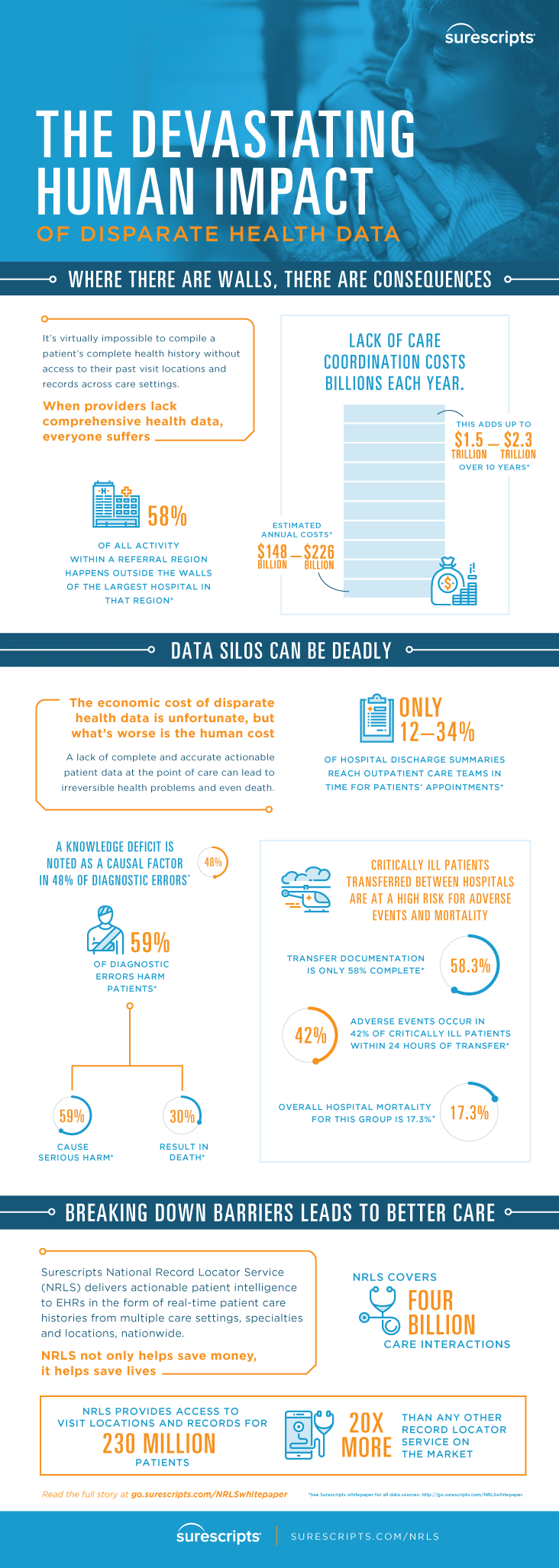The key driver of better care coordination is patient data that is easily accessible and shareable. However, data silos among disparate systems have made true nationwide interoperability—and the potential for better care—a challenge.
As noted in our new whitepaper, “All Healthcare Is Not Local: The Human Cost of Disparate Health Data,” and in our infographic below, only 12 to 34% of discharge summaries reach outpatient care teams in time for patient appointments. And when outpatient and ambulatory providers do not have relevant patient information, the results can be devastating. Knowledge deficits are recognized as a causal factor in 48% of diagnostic errors. An analysis of closed ambulatory care liability claims found that 59% of diagnostic errors harmed patients. Of those errors, 59% caused serious harm and 30% resulted in death.
When critically ill patients are transferred between hospitals, their transfer documents are frequently absent or incomplete, further exacerbating their health risks. It has been found that adverse events occur in 42% of critically ill patients within 24 hours of hospital-to-hospital transfers.
Clearly there is an urgent need for a trusted, scalable, national record locator service to support health information exchange, provider-to-provider communication and care coordination, regardless of geography. Giving physicians and hospitals the ability to access nationwide patient visit locations and records in real time is an important step to enabling higher quality care.
Surescripts National Record Locator Service (NRLS) capitalizes on our nationwide health information network to break down the barriers to interoperability so providers can find, request and receive actionable patient intelligence from outside systems within their existing EHR workflow at the point of care.
Since launching in March 2016, NRLS has grown to reach patients in all 50 states. NRLS is currently live in 10 major metropolitan areas, including Charlotte, Chicago, Los Angeles, Portland, San Francisco and St. Louis. As of February 2017, 14 major health systems are using NRLS and it has been adopted by EHR technology partners such as Aprima Medical Software, eClinicalWorks and NextGen Healthcare.
For more information about how NRLS connects the healthcare industry, please visit our website. And don’t forget to check out our whitepaper, “All Healthcare Is Not Local: The Human Cost of Disparate Health Data” and the infographic below.


 Dean Riggott Photography
Surescripts
Dean Riggott Photography
Surescripts